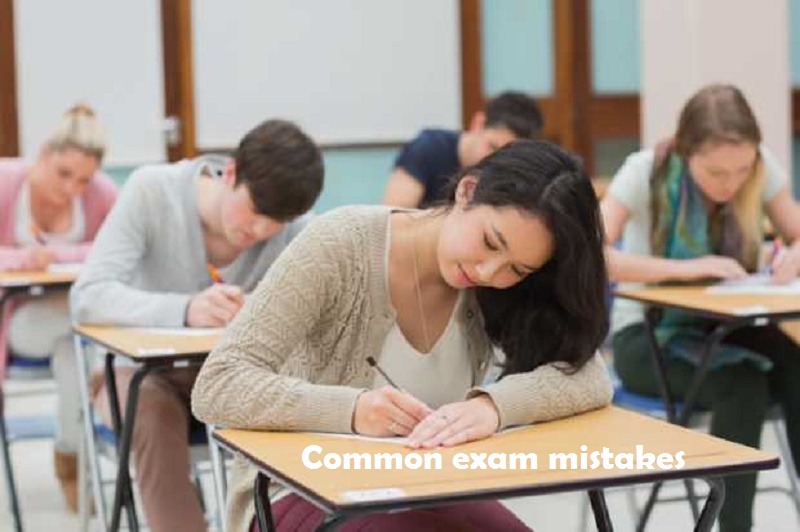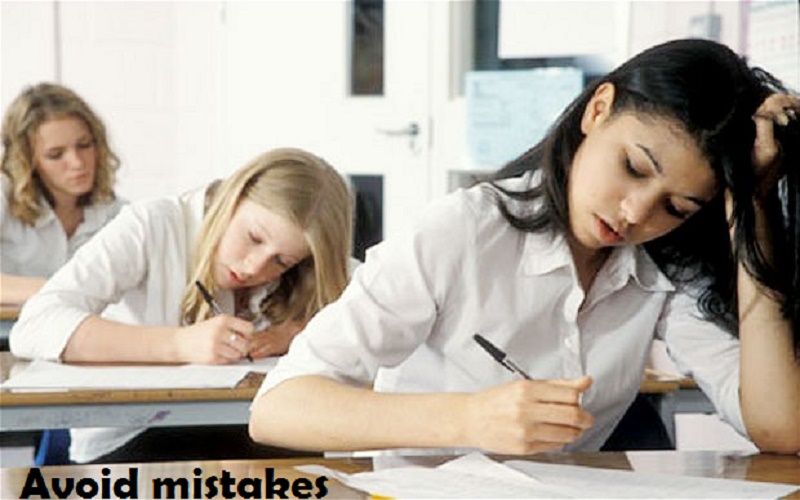Preparing an exam is not easy, since many mistakes are usually made and you should know how to avoid, so you can have many more opportunities to achieve better results. The nerves usually take over a large part of the students, and that often ruins many exams, and you can not afford it.
Luckily, nerves can calm down, so you’ll save yourself a lot of mistakes and concentrate better. Apart from that, there are also other mistakes that, if you commit them, can hurt you a lot in the final grade, so it’s important to know them to avoid them as much as possible.
Common exam mistakes
Blank answers: do not leave any, no matter how complicated the question is or think you’re going to run out of time to develop the answer. For little that you put, it will be valued than the fact of not putting anything at all.
Wrong answer: it happens on many occasions, especially in mathematics, that you develop the answer on a blank piece of paper and, when you pass the answer to the exam, you are wrong about something. It is not worth anything if you do it well if what the teacher is correcting is wrong.
Study badly: make sure that you are studying what corresponds, there is no greater waste of time than learning a subject that later you find out that it did not enter the exam. Ask well about the topics and everything you can enter to be clear and make the most of the time.
Without a clock: some students go to the exam without a clock, or who never take a look at it. That is a big mistake since it is important to know the time available to administer it well and give you time to complete the exam.
Unnamed: It seems incredible that a person forgets to put his name on an exam, but the professors say that a lot happens. It has to be the first thing you do, since without a name, as much as the exam is 10, the teacher will not know whose it is.
Without rest: another error that occurs a lot is that there are students who prepare so much the exam that they do not rest at all, they hardly sleep, and the only thing they do when they are awake is to study. That’s a big mistake. Do other things; your mind has to clear up. The afternoon before the exam you no longer study, go to the movies or relax at home, but get away to be cooler on the exam.
How to avoid mistakes
Before leaving a blank exam question, stand and read it with confidence making sure you have understood it. Never answer the question without knowing it well understood.
If the question is accompanied by five lines to explain the answer, it is clear that the examiners do not expect to get a one-answer answer or three- word answer. Analyze your answer and discuss it using the space you have available.
It is very typical that you enter an attack of anguish if you read the first question and you do not understand it, the second one you do not know, and you do not think you can answer the third one. Instead of throwing in the towel and leaving the classroom, take the exam. Before starting to read and write frantically, analyze the exam well, assess the number of questions you have and the time they allow you to develop it.
Make an approximate calculation of what you have to use in each question and try not to overdo it. If you have time in the end, you can go back to review and add data.
Before starting to read and write frantically, analyze the exam well, assess the number of questions you have and the time they allow you to develop it. Make an approximate calculation of what you have to use in each question and try not to overdo it. If you have time in the end, you can go back to review and add data.
In an exam, not only is it important to answer the questions properly, but it is also important to do it without spelling and grammar errors. Check the exam well at the end to add punctuation marks, accents or correct misspellings.






